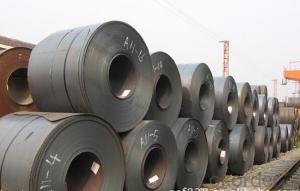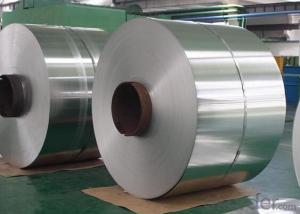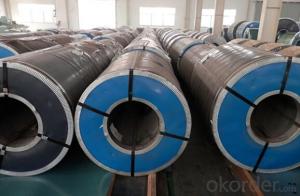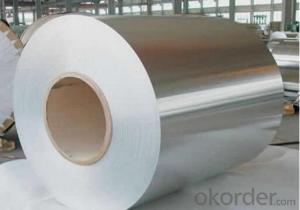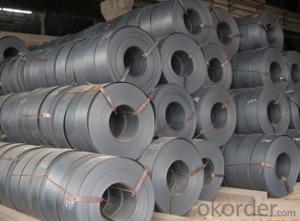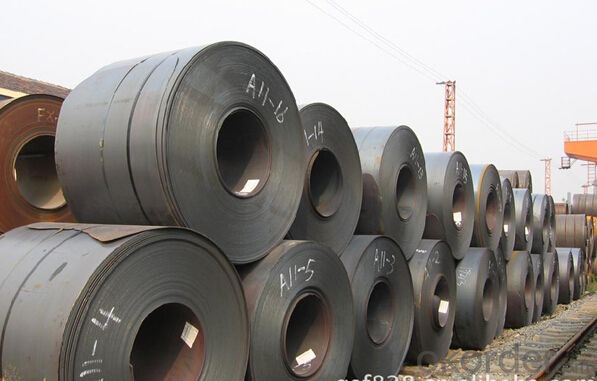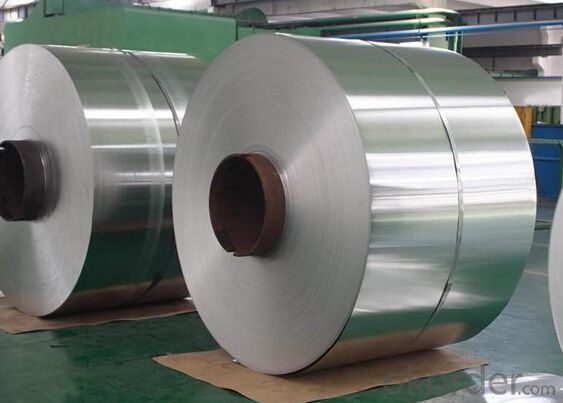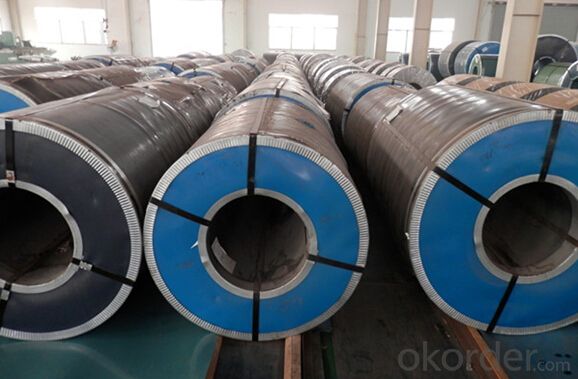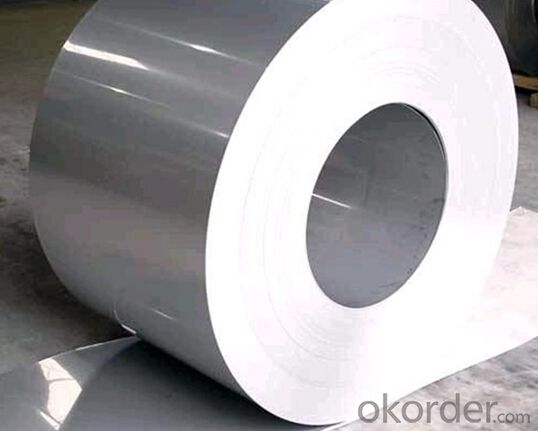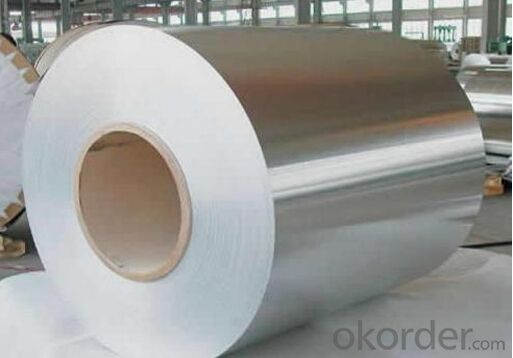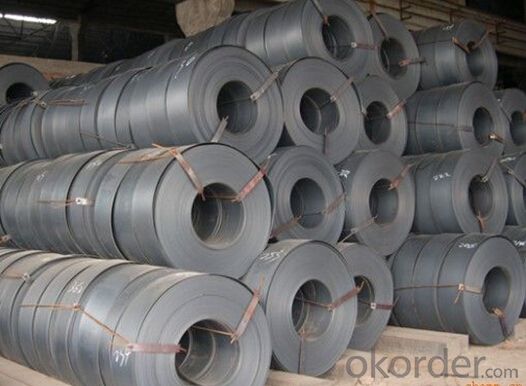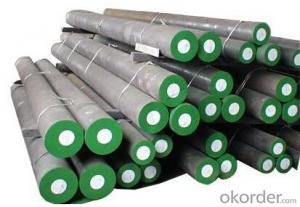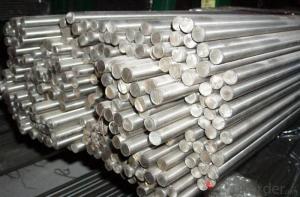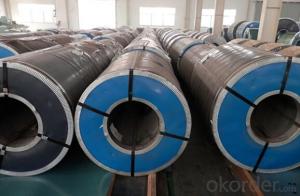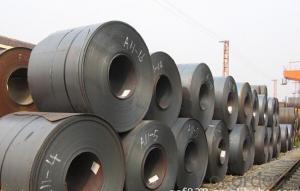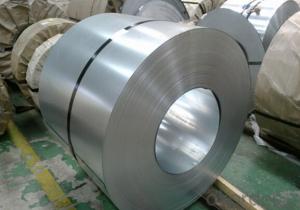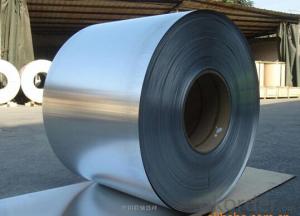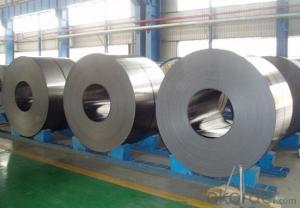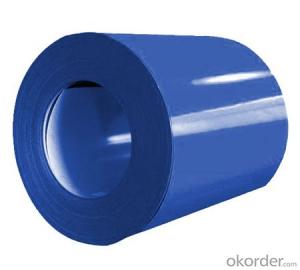Grade EN10346-DX51D+Z Galvanized Steel Coil
- Loading Port:
- Tianjin
- Payment Terms:
- TT OR LC
- Min Order Qty:
- 3 m.t.
- Supply Capability:
- 10000 m.t./month
OKorder Service Pledge
OKorder Financial Service
You Might Also Like
Specification
Grade EN10346-DX51D+Z Galvanized Steel Coil
Specification of Grade EN10346-DX51D+Z Galvanized Steel Coil
1. Galvanized Steel Coil
(1) Width: 600-1570mm
(2) Thickness: 0.13-5.0mm
(3) Grade: JIS G3302-SGCC-SGC570, SGCH (full hard-G550), SGHC-SGH540
EN10346-DX51D+Z, DX53D+Z, S250GD-S550GD
STM A653-CS-B, SS255-SS550
(4) Zinc Coating: Z40g/m2~Z500g/m2 (both side total coating thickness)
2. Galvalume Steel Coil
(1) Width: 600~1500mm
(2) Thickness: 0.15~2.30mm
(3) Grade: JIS G3321-SGLCC, SGLC400-570, (G550)
EN10346-DX51D+AZ, DX53D+AZ, S250-S550
ASTM A792M CS-B, SS255-SS550
(4) AZ Coating: AZ50~AZ185g/m2
3. Prepainted Galvanized Steel Coil (PPGI)
(1) Width: 600~1250mm
(2) Thickness: 0.19~1.50mm
(3) Grade: JIS G3312-CGCC, CGC340-570, (G550)
ASTM A755M CS-B, SS255-SS550
(4) Zinc Coating: Z40g/m2~Z500g/m2 (both side total coating thickness)
4. Prepainted Galvanized Steel Coil (PPGL)
(1) Width: 600~1250mm
(2) Thickness: 0.20~1.50mm
(3) Grade: JIS G3322-CGLCC, CGLC340-570, (G550)
ASTM A755M CS-B, SS255-SS550
(4) AZ Coating: AZ50~AZ185g/m2 (both side total coating thickness)
5. Cold Rolled Steel Coil (Soft) (for further information, pls click the product name)
(1) Width: 600~1570mm
(2) Thickness: 0.13~2.50mm
(3) Grade: JIS G3141-SPCC-SD, SPCD-SD, SPEC-SD
JIS G3135-SPFC 340/390/440
EN10130-DC01, DC03, DC04
SAE1006, SAE1008
ASTM A424-TypeⅡ
6. Cold Rolled Steel Coil (Full Hard) (for further information, pls click the product name)
(1) Width: 600~1570mm
(2) Thickness: 0.13~2.50mm
(3) Grade: JIS G3141-SPCC-1B, SPCC-1D
7. Hot Rolled Steel Coil
(1) Width: 1000~1524mm
(2) Thickness: 1.20~16.5mm, other thickness can be negotiation
(3) Grade: JIS G3101-SS400, JIS G3132-SPHT1/2/3, ASTM A36, Q195, Q235 etc.
Company Introduction of the Grade EN10346-DX51D+Z Galvanized Steel Coil
CNBM International Corporation is the most import and export platform of CNBM group(China National Building Material Group Corporation) ,which is a state-owned enterprise, ranked in 270th of Fortune Global 500 in 2015.
With its advantages, CNBM International are mainly concentrate on Cement, Glass, Iron and Steel, Ceramics industries and devotes herself for supplying high quality series of refractories as well as technical consultancies and logistics solution.
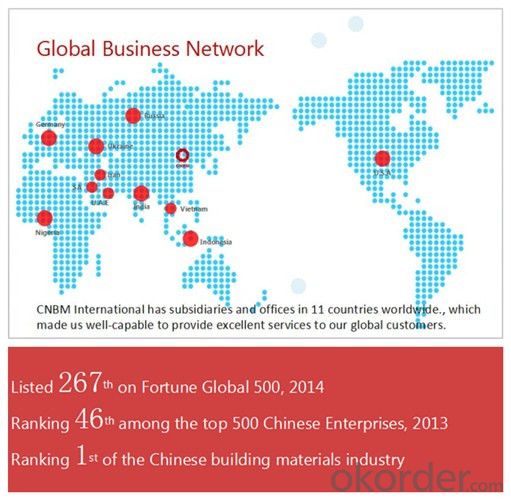
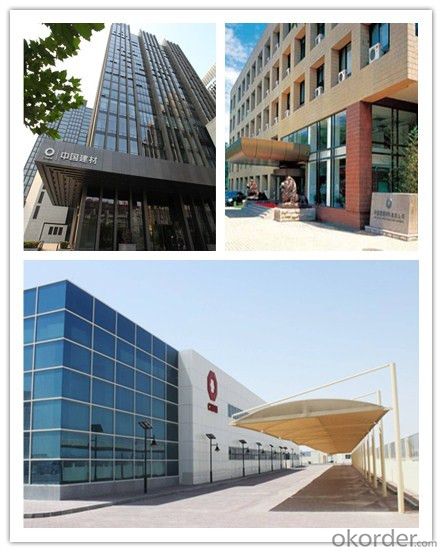
Packaging & Delivery of the Grade EN10346-DX51D+Z Galvanized Steel Coil
Packaging Detail | Sea worthy packing /as per customer's packing instruction |
Delivery Detail | 15 ~ 40 days after receiving the deposit |
Products Show:
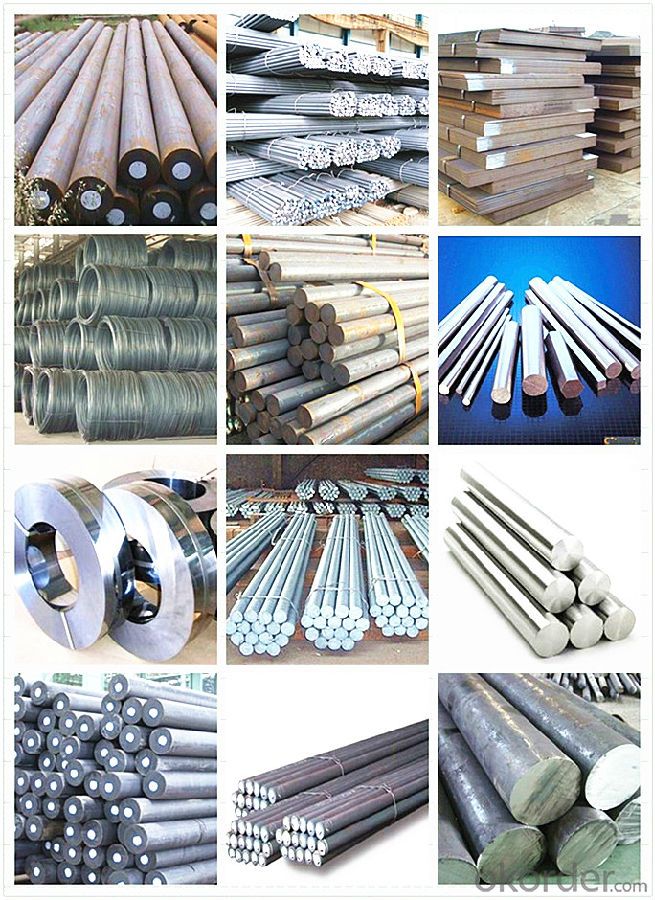
FAQ:
Are you a trading company or manufacturer? | Manufacturer |
What’s the MOQ? | 3 metric ton |
What’s your delivery time? | 15-35 days after downpayment received |
Do you Accept OEM service? | Yes |
what’s your delivery terms? | FOB/CFR/CIF |
What's the Payment Terms? | 30% as deposit,70% before shipment by T/T |
Western Union acceptable for small amount. | |
L/C acceptable for large amount. | |
Scrow ,Paybal,Alipay are also ok | |
Why choose us? | Chose happens because of quality, then price, We can give you both. Additionally, we can also offer professional products inquiry, products knowledge train (for agents), smooth goods delivery, excellent customer solution proposals. |
What's your available port of Shipment? | Main Port, China |
What’s your featured services? | Our service formula: good quality+ good price+ good service=customer's trust
|
Where are your Market? | Covering more than 160 countries in the world |
- Q: How does special steel contribute to the energy industry?
- Special steel plays a crucial role in the energy industry by providing high-performance materials that are essential for the construction and operation of various energy infrastructure. It is used in the manufacturing of turbines, generators, pipelines, and other components of power plants, helping to enhance their efficiency and reliability. Special steel's superior strength, corrosion resistance, and heat resistance properties make it suitable for withstanding the demanding conditions and extreme temperatures in power generation and transmission. Additionally, special steel is used in the production of renewable energy equipment such as wind turbines and solar panels, further contributing to the sustainable growth of the energy industry.
- Q: What are the properties of wear-resistant steel?
- Wear-resistant steel possesses several key properties that make it highly effective in withstanding wear and abrasion. These properties include high hardness, excellent toughness, good strength, and resistance to impact and fatigue. It also exhibits a low coefficient of friction, which reduces the frictional forces acting on the material, thereby minimizing wear. Additionally, wear-resistant steel is often characterized by high corrosion resistance, ensuring its durability in harsh environments. Overall, these properties make wear-resistant steel a reliable and long-lasting material for applications where wear and abrasion are significant concerns.
- Q: What are the different tool steel alloys?
- Tool steel is a type of carbon and alloy steel that is specifically designed for the production of tools, dies, and cutting applications. There are several different tool steel alloys available, each with its own unique properties and characteristics. 1. Carbon Tool Steels: These steels contain a higher carbon content, usually ranging from 0.60% to 1.00%. They offer excellent hardness, wear resistance, and toughness, making them suitable for cutting and forming tools. 2. High-Speed Tool Steels: These steels are specifically designed to withstand high temperatures and maintain their hardness and strength at elevated speeds. They typically contain various alloying elements such as tungsten, molybdenum, and vanadium. 3. Shock-Resistant Tool Steels: As the name suggests, these steels are designed to withstand high impact or shock loads without fracturing. They offer excellent toughness and are commonly used for chisels, hammers, and other tools subjected to intense impact forces. 4. Hot-Work Tool Steels: These steels are engineered to retain their hardness and strength at high temperatures, making them ideal for applications involving hot forming or forging processes. They exhibit excellent thermal conductivity and wear resistance. 5. Cold-Work Tool Steels: These steels are specifically designed for applications involving cutting, shearing, and forming at room temperature or lower. They possess high hardness, wear resistance, and toughness, enabling them to withstand the stresses associated with cold-working operations. 6. Mold Steels: Mold steels are primarily used in the production of molds for plastic injection molding, die casting, and extrusion processes. They offer good machinability, high wear resistance, and excellent dimensional stability. 7. Stainless Tool Steels: Stainless tool steels combine the corrosion resistance of stainless steel with the hardness and toughness of tool steel. They are commonly used in applications where both wear resistance and corrosion resistance are required. These are just a few examples of the different tool steel alloys available in the market. Each alloy has its own specific properties and applications, allowing manufacturers to select the most suitable tool steel for their specific needs.
- Q: How is the tensile strength of special steel measured?
- The tensile strength of special steel is typically measured using a standardized test called a tensile test. In this test, a sample of the steel is subjected to controlled tensile forces until it reaches its breaking point. The amount of force required to break the sample is then recorded as the tensile strength of the steel.
- Q: How does special steel ensure dimensional stability?
- Special steel ensures dimensional stability through a combination of factors such as controlled composition, precise heat treatment, and careful manufacturing processes. The specific composition of special steel is designed to have a lower coefficient of thermal expansion, which means it expands and contracts less with changes in temperature compared to regular steel. This ensures that the dimensions of the steel remain stable even under varying temperature conditions. Additionally, the heat treatment process further enhances the dimensional stability by refining the microstructure and reducing internal stresses. The careful manufacturing processes, including precise machining and quality control, also contribute to maintaining dimensional stability in special steel products.
- Q: How is boron steel used in automotive safety applications?
- Boron steel is used in automotive safety applications due to its high strength and ability to absorb and distribute impact energy. It is commonly used in the construction of safety cages, reinforcements, and components such as side impact beams, door beams, and crash boxes. Its exceptional crashworthiness properties help improve the structural integrity of vehicles, enhance occupant protection, and reduce the risk of serious injuries during accidents.
- Q: How does special steel contribute to the construction of infrastructure projects?
- Special steel plays a crucial role in the construction of infrastructure projects by offering enhanced strength, durability, and versatility. This type of steel is specifically designed to meet the unique requirements and challenges posed by infrastructure projects, making it an essential component in their successful completion. One way in which special steel contributes to infrastructure projects is through its superior strength. Infrastructure projects, such as bridges, tunnels, and high-rise buildings, require materials that can withstand heavy loads and harsh environmental conditions. Special steel possesses high tensile and yield strength, allowing it to bear significant loads without deformation or failure. This strength ensures the structural integrity and safety of the infrastructure, offering peace of mind to engineers, architects, and the public. Durability is another crucial aspect that special steel brings to infrastructure projects. These projects are often subjected to various environmental factors, including extreme temperatures, moisture, and corrosive elements. Special steel is designed to resist corrosion, oxidation, and degradation, making it highly durable and capable of withstanding harsh conditions. Its long lifespan reduces maintenance and replacement costs, making it a cost-effective choice for infrastructure projects. Versatility is yet another advantage of special steel in infrastructure construction. It can be customized and fabricated into various shapes and sizes to fit the specific needs of different projects. Whether it is used for beams, columns, or reinforcements, special steel offers flexibility in design and construction. This adaptability enables engineers and architects to create innovative and efficient infrastructure designs, optimizing space and resources. Furthermore, special steel contributes to the sustainability of infrastructure projects. Its recyclability and eco-friendly nature make it an environmentally responsible choice. Steel can be recycled without compromising its properties, reducing the demand for new raw materials and minimizing waste. This sustainable approach aligns with the growing emphasis on environmentally friendly construction practices, making special steel an ideal material for infrastructure projects. In conclusion, special steel significantly contributes to the construction of infrastructure projects through its superior strength, durability, versatility, and sustainability. Its ability to withstand heavy loads, harsh environmental conditions, and provide long-lasting performance ensures the safety and reliability of infrastructure. Moreover, its flexibility in design and construction allows for innovative and efficient project execution. With these advantages, special steel remains an essential component in the development of robust and sustainable infrastructure.
- Q: How does special steel perform in cryogenic gas environments?
- Special steel performs well in cryogenic gas environments due to its low temperature resistance and high strength. It has excellent toughness and can withstand extreme cold temperatures without becoming brittle or undergoing significant deformation. This makes it ideal for applications such as cryogenic storage tanks, pipelines, and equipment used in industries like aerospace, energy, and scientific research, where materials need to maintain their integrity and performance in extremely cold conditions.
- Q: Can special steel be used for medical implants?
- Yes, special steel can be used for medical implants. Certain types of stainless steel, such as 316L, are commonly utilized in the manufacturing of medical implants due to their excellent biocompatibility, corrosion resistance, and mechanical properties.
- Q: How does special steel contribute to reducing product rejection rates in quality control?
- Special steel can contribute to reducing product rejection rates in quality control by providing enhanced material properties such as increased strength, hardness, and corrosion resistance. These improved properties make special steel suitable for manufacturing critical components, ensuring that they meet the required specifications and quality standards. By using special steel, manufacturers can produce products that are less prone to defects, leading to lower rejection rates during quality control inspections.
Send your message to us
Grade EN10346-DX51D+Z Galvanized Steel Coil
- Loading Port:
- Tianjin
- Payment Terms:
- TT OR LC
- Min Order Qty:
- 3 m.t.
- Supply Capability:
- 10000 m.t./month
OKorder Service Pledge
OKorder Financial Service
Similar products
Hot products
Hot Searches
Related keywords
